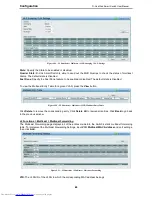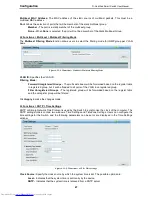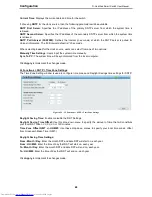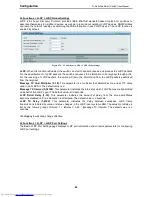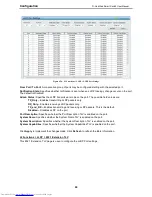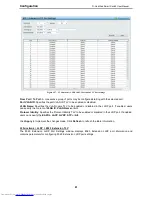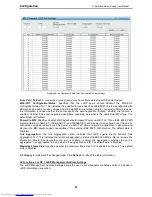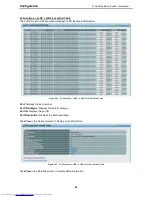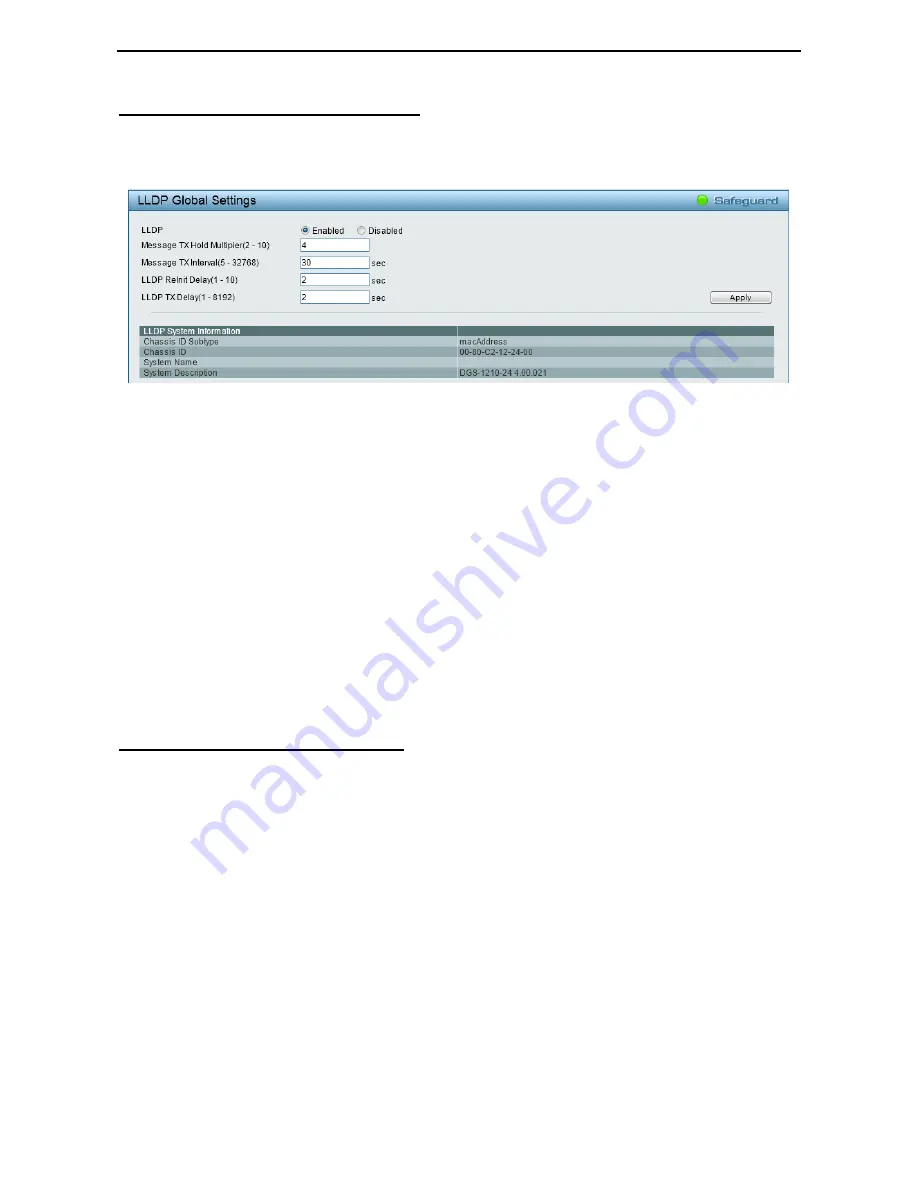
Configuration
D-Link Web Smart Switch User Manual
4
4
9
9
LLDP (Link Layer Discovery Protocol) provides IEEE 802.1AB standards-based method for switches to
advertise themselves to neighbor devices, as well as to learn about neighbor LLDP devices. SNMP utilities
can learn the network topology by obtaining the MIB information in each LLDP device. The LLDP function is
enabled by default.
L2 Functions > LLDP > LLDP Global Settings
Figure 4.55 – L2 Functions > LLDP > LLDP Global Settings
LLDP:
When this function is
Enabled
, the switch can start to transmit, receive and process the LLDP packets.
For the advertisement of LLDP packets, the switch announces the information to its neighbor through ports.
For the receiving of LLDP packets, the switch will learn the information from the LLDP packets advertised
from the neighbor.
Message TX Hold Multiplier (2-10):
This parameter is a multiplier that determines the actual TTL value
used in an LLDPDU. The default value is
4
.
Message TX Interval (5-32768):
This parameter indicates the interval at which LLDP frames are transmitted
on behalf of this LLDP agent. The default value is
30
seconds.
LLDP ReInit Delay (1-10):
This parameter indicates the amount of delay from the time adminStatus
becomes disabled until re-initialization is attempted. The default value is
2
seconds.
LLDP TX Delay (1-8192):
This parameter indicates the delay between successive LLDP frame
transmissions initiated by value or status changes in the LLDP local systems MIB. The value for txDelay is
set by the following range formula: 1 < txDelay
≤
0.25 * (Message TX Interval). The default value is
2
seconds.
Click
Apply
to make the change effective.
The Basic LLDP Port Settings page displays LLDP port information and contains parameters for configuring
LLDP port settings.
L2 Functions > LLDP > LLDP Port Settings












